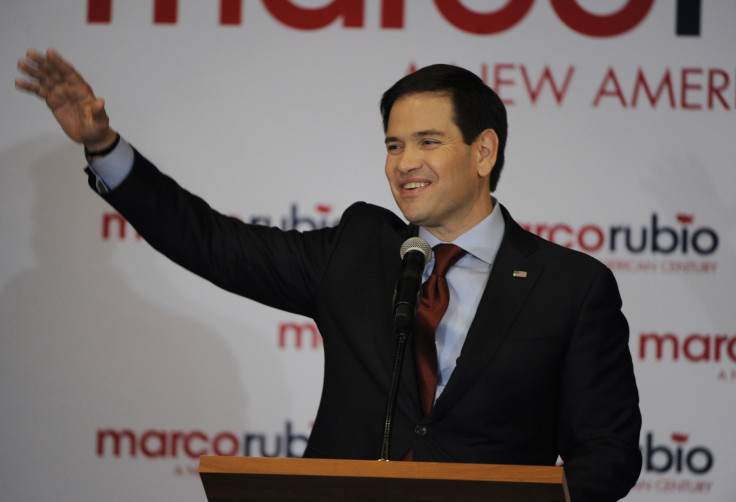Iowa Caucus 2016: Voters Embrace Cuban, Jewish, Black And Woman Candidates

According to Twitter, it almost sounds like the beginning of a joke: "A woman, a Jew and two Hispanic men walked into the Iowa caucuses..." But diversity in the field of presidential hopefuls this year is no laughing matter, and various victories Monday night in Iowa proved it.
On the Republican side, Texas Sen. Ted Cruz — whose dad is Cuban — won the caucus with 28 percent of the vote. Florida Sen. Marco Rubio, the son of Cuban immigrants, came in third with 23 percent. Retired neurosurgeon Ben Carson, who is black and was No. 4 Monday, had 9 percent. Together, they accounted for more than 112,000 votes.
On the Democratic end of the spectrum, former Secretary of State Hillary Clinton, who wants to become the nation's first woman president, and Vermont Sen. Bernie Sanders, who identifies as Jewish, split the vote 50-50.
The Iowa caucuses have been criticized as "overwhelmingly white" in the past. While there's no demographic breakdown of 2016 caucus goers available yet, their choice of candidates was more multicultural than usual. Could Monday night's results, especially when considered alongside now-President Barack Obama's success in the state, indicate a political shift?
"Americans have become significantly more accepting over time," according to a 2015 Gallup poll that found more than 90 percent of people would vote for a Catholic, female, black, Hispanic or Jewish presidential candidate. In 1937, only a third of people said they'd vote for a woman and 46 percent said they'd vote for a Jewish person.
CNN reported in 2014 that "this is not your daddy's GOP." "Democrats are known as having great policies (for minorities) on paper, but it's harder to rise through the ranks," Andra Gillespie, an associate professor of political science at Emory University, told the site. "The Republicans don't have great policies on paper, but they are often more supportive of their minority candidates."
This may be due in part to the "autopsy report" issued by the Republican National Committee in 2013 that concluded candidates needed to better engage minority voters. Racial politics expert Taeku Lee told FiveThirtyEight that the party needs to focus on more than just numbers.
“Unless candidates like Carson, Cruz and even Rubio begin to better connect their descriptive identity to policy proposals that speak to where black, Latino and Asian voters are on these issues, co-ethnic mobilization will only go so far,” he said.
© Copyright IBTimes 2025. All rights reserved.





















